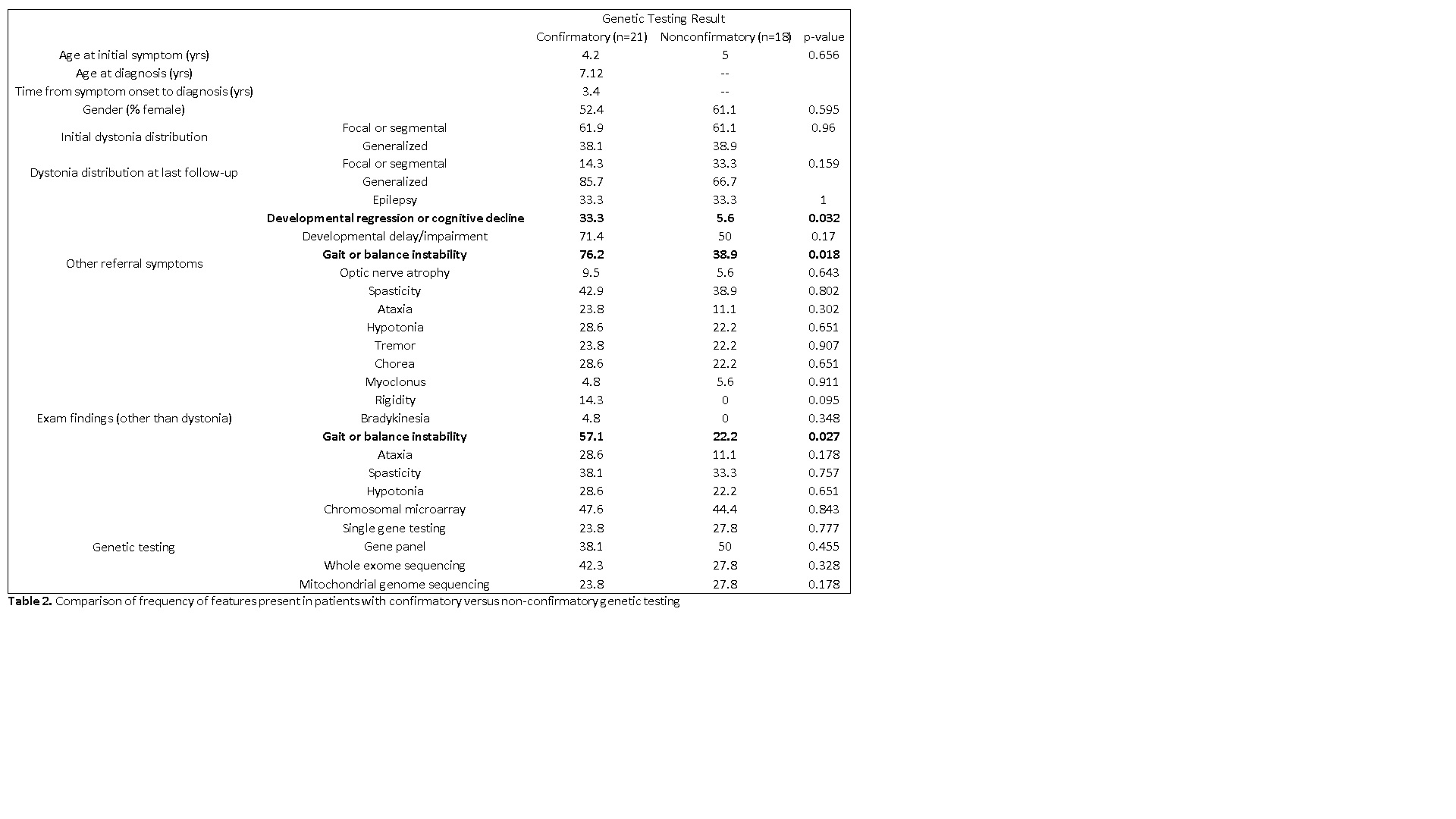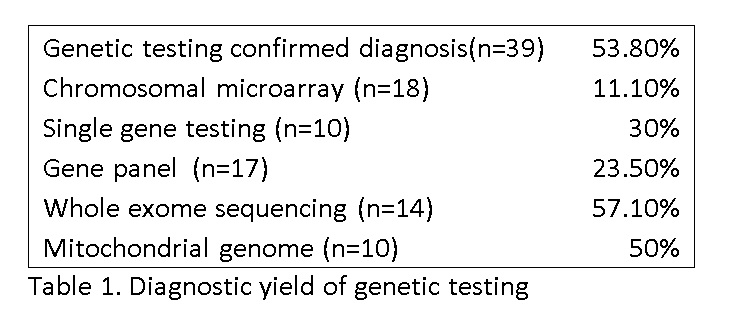Objective: To identify the yield of genetic testing in suspected genetically determined pediatric dystonia. Identify differences in clinical factors among patients with confirmatory and non-confirmatory genetic testing.
Background: Pediatric dystonia is frequently part of a complex neurodevelopmental disorder, often due to an underlying genetic etiology. The yield of genetic testing and factors influencing diagnostic yield in pediatric dystonia have not been reported to date.
Method: We retrospectively reviewed the electronic medical records of pediatric patients with dystonia evaluated at our center between 2016 and 2019 and identified patients who had genetic testing done as part of their evaluation for a suspected genetic etiology. We identified initial presenting symptomatology, exam findings, details of genetic testing, and time from initial symptom to diagnosis in patients with a confirmed genetic diagnosis.
Results: We identified thirty-nine pediatric dystonia patients with genetic testing. Genetic testing confirmed a genetic diagnosis in 53.8% of patients. Yield of confirming a diagnosis with genetic testing was as follows: chromosomal microarray (n=18): 11.1%; single gene testing (n=10): 30%; gene panel testing (n=17): 23.5%; whole exome sequencing (n=14): 57.1%; and mitochondrial genomic sequencing (n=10): 50%. Compared to patients with non-confirmatory genetic testing, patients with confirmatory genetic testing more often presented with developmental regression/cognitive decline (33.3% versus 5.6%, p=0.032) or gait/balance complaints (76.2% versus 38.9%, p=0.018) and more often had gait/balance abnormalities on exam (57.1% versus 22.2%, p=0.027). Average time to confirmatory diagnosis was 3.4 years from initial symptom onset.
Conclusion: We report confirming a genetic etiology in 53.8% of pediatric patients presenting with dystonia of suspected genetic etiology. This information may help inform future treatment decisions and patient counseling. The presence of certain co-occurring clinical factors may help predict the likelihood that testing will confirm a genetic etiology.
To cite this abstract in AMA style:
T. Larsh, H. Fernandez, M. Aldosari. Genetic testing in pediatric dystonia and influence of clinical factors on diagnostic yield [abstract]. Mov Disord. 2020; 35 (suppl 1). https://www.mdsabstracts.org/abstract/genetic-testing-in-pediatric-dystonia-and-influence-of-clinical-factors-on-diagnostic-yield/. Accessed February 4, 2026.« Back to MDS Virtual Congress 2020
MDS Abstracts - https://www.mdsabstracts.org/abstract/genetic-testing-in-pediatric-dystonia-and-influence-of-clinical-factors-on-diagnostic-yield/


